
In the dynamic landscape of entertainment, few figures have carved out a path as diverse and impactful as Lonnie Rashid Lynn, universally known as Common. From the underground hip-hop circuits of Chicago to the bright lights of Hollywood and Broadway, Common has demonstrated an exceptional ability to transcend genres and mediums, earning accolades across music, film, and television.
His journey is not just a testament to artistic versatility but also to a consistent commitment to authentic expression and social consciousness. Common has consistently leveraged his platforms to tell stories, provoke thought, and advocate for change, making him a truly unique voice in contemporary culture.
This article delves into the various facets of Common’s illustrious career, examining the pivotal moments, creative collaborations, and personal philosophies that have shaped him into one of the most respected and admired artists of his generation. We will explore his significant achievements, from early musical breakthroughs to his impactful work in acting and activism, providing a comprehensive overview of his remarkable contributions.
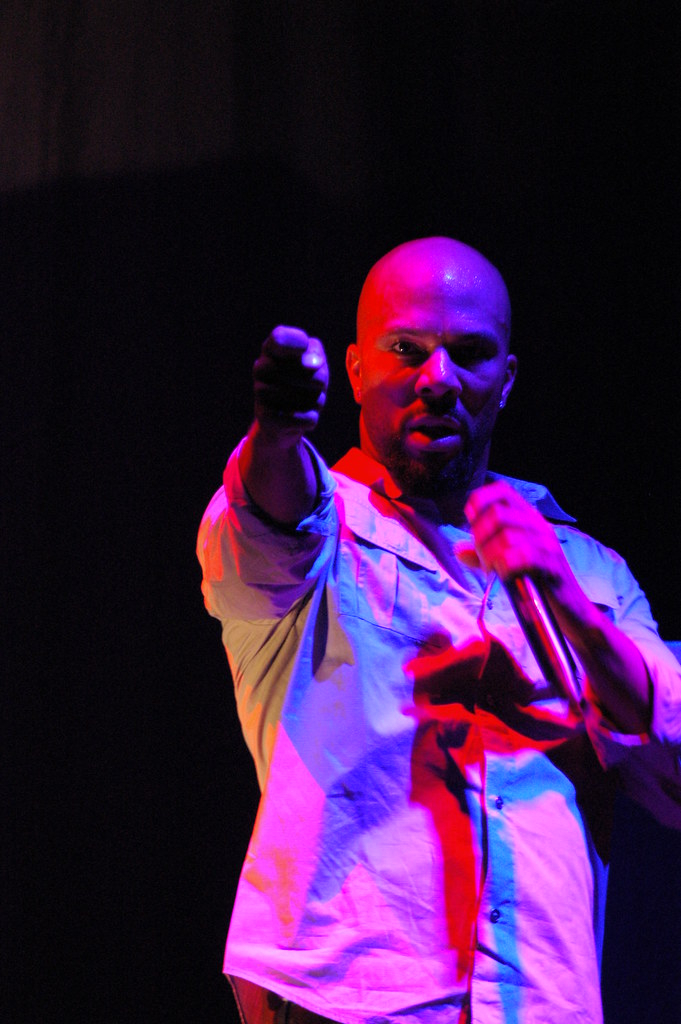
1. **Award-Winning Artist: The Quadruple Threat**Common stands as a rare artistic talent, having achieved the prestigious distinction of winning an Academy Award, a Grammy Award, a Primetime Emmy Award, and a Golden Globe Award. This ‘EGOT’-adjacent status underscores his unparalleled success across distinct creative fields, a feat few artists ever accomplish. His ability to excel in both musical and visual storytelling speaks volumes about his profound skill and dedication to his craft.
His Grammy Awards include Best R&B Song for “Love of My Life (An Ode to Hip-Hop)” in 2003 and Best Rap Performance by a Duo or Group for “Southside” (featuring Kanye West) in 2008. These early wins highlighted his lyrical prowess and his capacity to collaborate effectively, establishing him as a formidable force in the music industry.
The Academy Award for Best Original Song, which he shared with John Legend for “Glory” from the film *Selma* (2014), marked a significant crossover moment. This powerful anthem resonated deeply, capturing the spirit of the civil rights movement and demonstrating Common’s ability to craft music with profound cultural relevance and emotional depth.
Further cementing his status as a multi-talented artist, Common also received a Primetime Emmy Award for Outstanding Original Music and Lyrics for his song “Letter to the Free,” featured in the Ava DuVernay-directed Netflix documentary *13th* (2017). This award recognized his continued commitment to addressing significant social issues through his art, extending his impact into the realm of documentary filmmaking.
His Golden Globe Award for “Glory” completed this impressive array of major accolades. These awards collectively illustrate Common’s journey from a celebrated rapper to a universally recognized artist whose work garners top honors across the most respected award ceremonies in entertainment. Each award is a benchmark of his continuous artistic evolution and his unwavering pursuit of excellence.
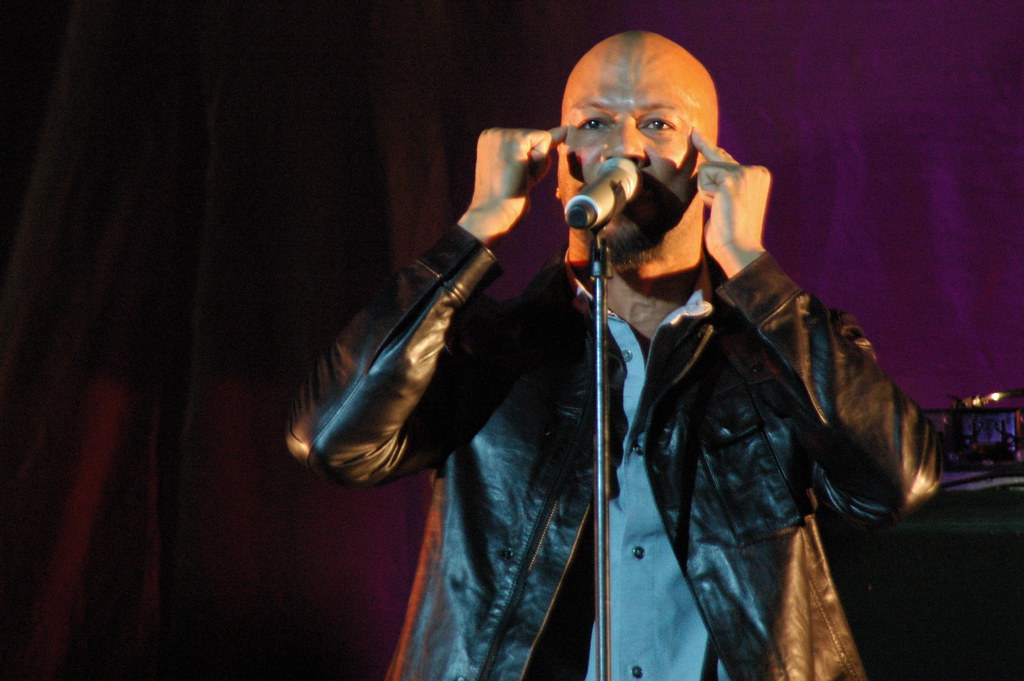
2. **Early Musical Foundations: From C.D.R. to Common Sense**Common’s musical journey began in the vibrant hip-hop scene of late 1980s Chicago. While a student at Luther High School South, he co-founded a rap trio named C.D.R. alongside two friends. This early group gained valuable experience by opening for prominent acts such as N.W.A and Big Daddy Kane, providing Common with his first taste of performing on larger stages.
By 1991, C.D.R. had dissolved, prompting Lynn to embark on a solo career under the stage name Common Sense. This marked a pivotal moment, as he began to forge his unique artistic identity. His talent was quickly recognized when he was featured in *The Source* magazine’s influential “Unsigned Hype” column, a significant endorsement in the hip-hop community.
His official solo debut came in 1992 with the single “Take It EZ,” which laid the groundwork for his first studio album, *Can I Borrow a Dollar?*, released in the same year. This album introduced his distinct lyrical style and introspective approach to rap, setting him apart from many of his contemporaries.
*Can I Borrow a Dollar?* showcased a raw, authentic voice that quickly garnered an underground following. It was a foundational project, demonstrating his early potential and hinting at the depth he would later bring to his music. The album established his presence in the Chicago music scene and beyond, signaling the arrival of a significant new artist.
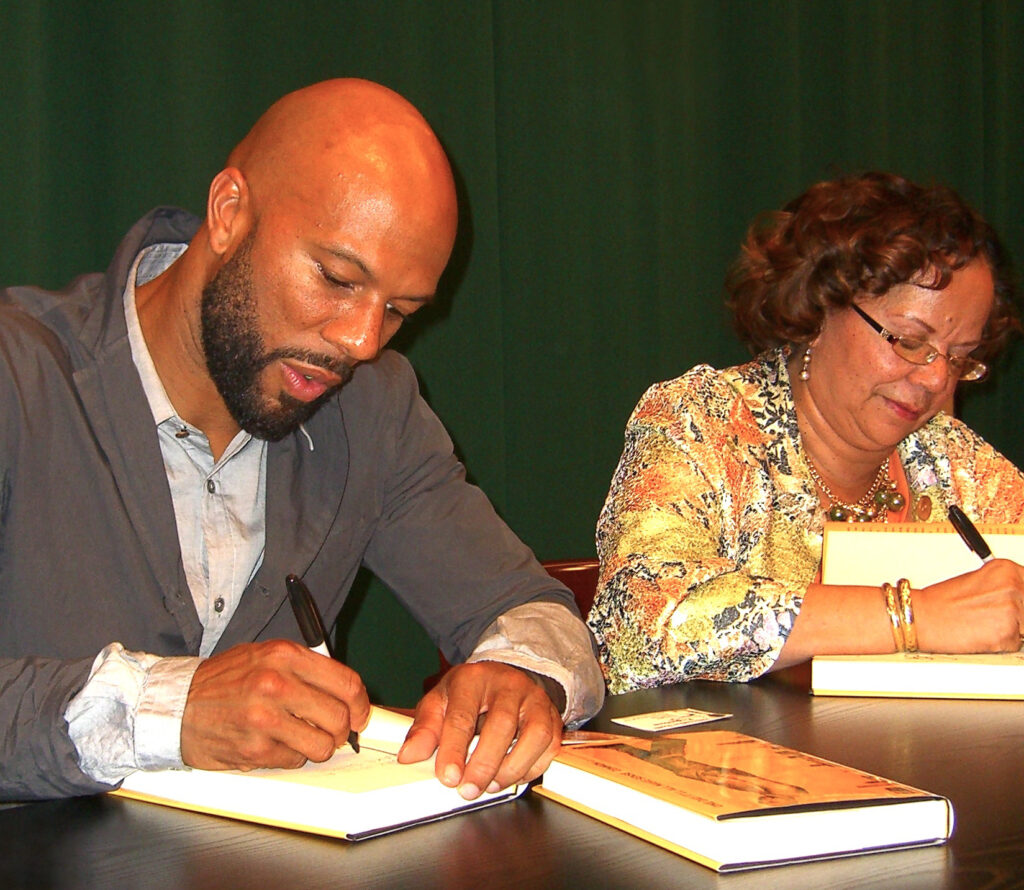
3. **The Critical Breakthrough: “Resurrection” and “I Used to Love H.E.R.”**Common Sense achieved a much larger degree of critical acclaim with the 1994 release of his second album, *Resurrection*. This album transcended the Chicago music scene, earning widespread positive reactions among alternative and underground hip-hop fans. It became a landmark recording, solidifying his reputation as a thoughtful and skilled lyricist.
*Resurrection* sold relatively well for an independent release and featured production almost entirely by his long-time partner, No I.D., who would later become a mentor to a young Kanye West. The collaboration between Common Sense and No I.D. proved to be a fertile ground for innovative hip-hop, pushing creative boundaries.
The album contained the seminal track, “I Used to Love H.E.R.,” which garnered immense attention and became a cornerstone of Common’s catalog. The song utilized a metaphor of a woman to convey the path hip-hop music was taking, a narrative device that was both innovative and deeply resonant with listeners and critics alike. It was praised for its cleverness and its critique of the genre’s evolving direction.
“I Used to Love H.E.R.” was not only a critical success but also sparked important discussions within the hip-hop community about authenticity and artistic direction. Its intricate storytelling and poetic delivery cemented Common Sense’s status as a voice of intelligence and introspection, further establishing his unique position in the genre.
Read more about: Decoding Common’s Journey: Actionable Insights from a Hip-Hop Icon’s Multifaceted Career
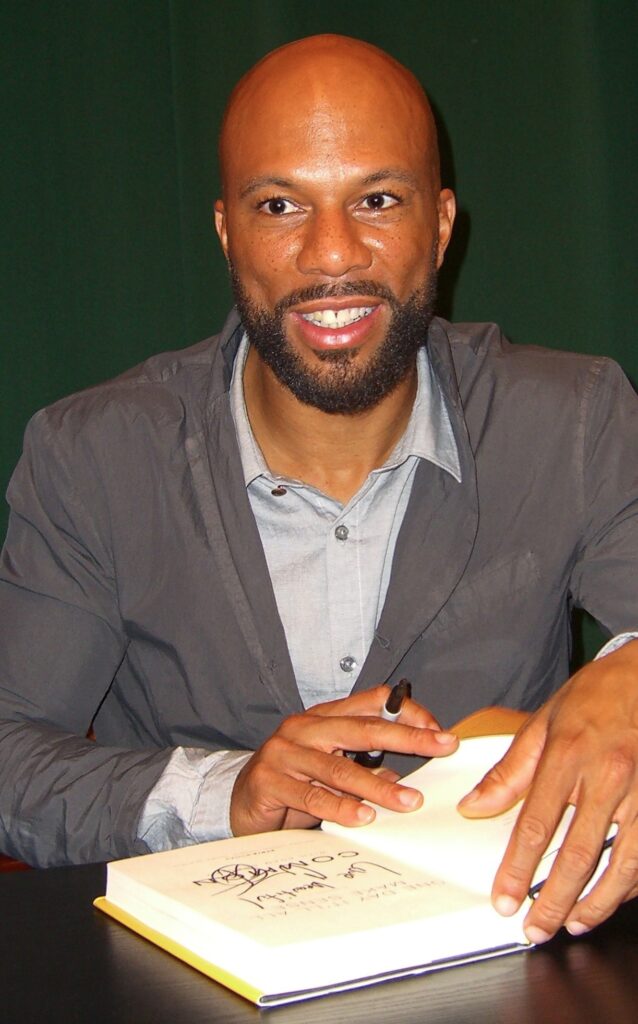
4. **Navigating Controversy: The Westside Connection Feud and Name Change**The profound impact of “I Used to Love H.E.R.” from *Resurrection* extended beyond critical acclaim, inadvertently igniting a significant feud with the West Coast rap group Westside Connection. The song’s lyrics, which critiqued the perceived direction of hip-hop music, were interpreted by some, particularly Ice Cube, as a direct criticism of the popularity of West Coast gangsta rap.
Westside Connection responded forcefully with their 1995 song “Westside Slaughterhouse,” featuring lyrics such as “Used to love H.E.R., mad cause I f*cked her.” This direct lyrical attack, which explicitly mentioned Common Sense by name, escalated the conflict. Common Sense, known for his thoughtful but potent lyricism, was compelled to respond.
His response came in the form of the scathing, Pete Rock-produced track “The Bitch in Yoo.” This retort demonstrated Common Sense’s ability to engage in a lyrical battle with intensity and skill, defending his artistic integrity and standing his ground against prominent figures in the genre. The back-and-forth insults continued, creating a notable rivalry within the hip-hop world.
Ultimately, the dispute was resolved through a meeting facilitated by Louis Farrakhan, a prominent figure known for his influence in the Black community. This intervention brought an end to the lyrical hostilities, allowing both parties to move forward. The resolution underscored the underlying respect within hip-hop, even amidst intense conflict.
Following the widespread popularity of *Resurrection* and the heightened profile from the feud, Common Sense faced a legal challenge. An Orange County-based reggae band with the same name sued him, compelling him to shorten his moniker to simply Common. This forced change, while born of legal necessity, marked a new chapter in his career, simplifying his identity as he continued to evolve artistically.
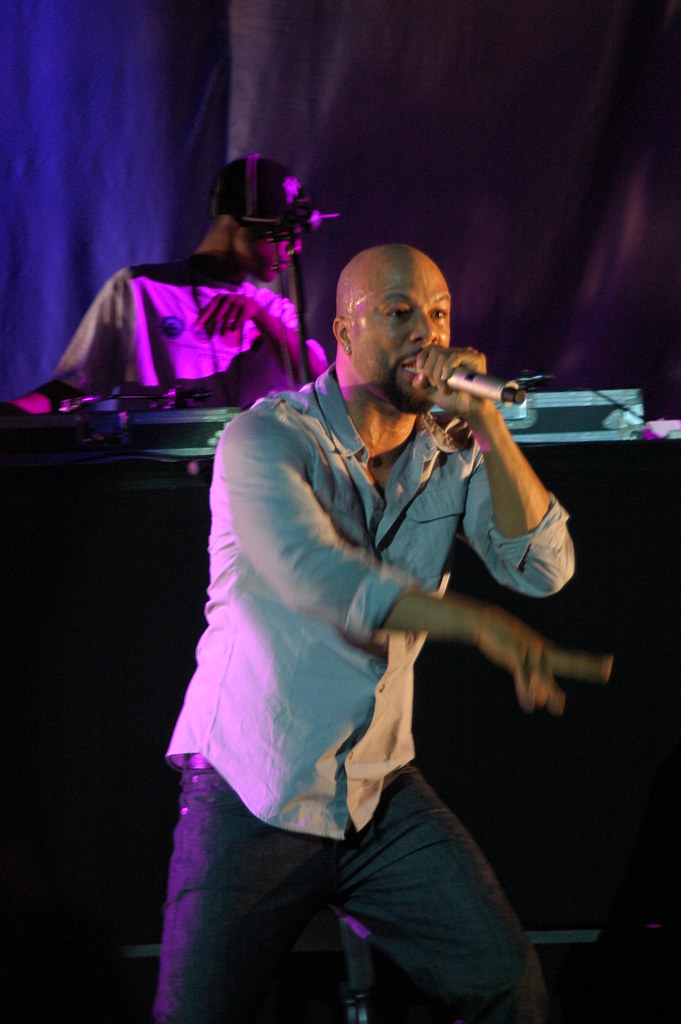
5. **A Period of Profound Growth: “One Day It’ll All Make Sense” and Fatherhood**Initially slated for an October 1996 release, Common’s third album, *One Day It’ll All Make Sense*, eventually arrived in September 1997. The album’s creation was a meticulous two-year process, indicative of the depth and intentionality Common poured into his work. It featured an impressive roster of collaborations with influential artists such as Lauryn Hill, De La Soul, Q-Tip, Canibus, Black Thought, Chantay Savage, and Questlove, a future fellow member of the Soulquarians.
This album was a deliberate departure from the gangsta rap narratives prevalent at the time, making a point of eschewing any glorification of such themes. This artistic choice, a response to ongoing questions about his musical integrity, showcased his commitment to a more conscious and introspective form of hip-hop. The album’s critical acclaim was significant, paving the way for a major label contract with MCA Records.
A profoundly personal event occurred shortly after the album’s release: the birth of his first child, daughter Omoye Assata Lynn. As documented by hip-hop journalist Raquel Cepeda in the album’s liner notes, this experience had a deep spiritual and mental effect on Common. It enabled him to grow both musically and as a person, fostering a heightened sense of responsibility as an artist and as a father.
Cepeda highlighted the composition of “Retrospect for Life,” produced by James Poyser and No I.D. and featuring Lauryn Hill, as a central piece of the project. The song, which offered a male perspective on abortion, became a driving force behind the album. Common himself reflected on the song’s meaning, stating, “when I listen to the song now, I think about how precious her (Omoye’s) life is,” underscoring the profound influence of fatherhood on his artistic and personal ethos.
*One Day It’ll All Make Sense* repeatedly addressed themes of family ethics, and its album sleeve was adorned with old family photos, illustrating Common’s childhood journey. The inclusion of a quote from 1 Corinthians 13:11, which speaks to the path to manhood – “When I was a child, I talked like a child, I thought like a child, I reasoned like a child. When I became a man, I put childish ways behind me” – perfectly summarized the album’s overarching theme of maturity and personal evolution.
Read more about: Decoding Common’s Journey: Actionable Insights from a Hip-Hop Icon’s Multifaceted Career
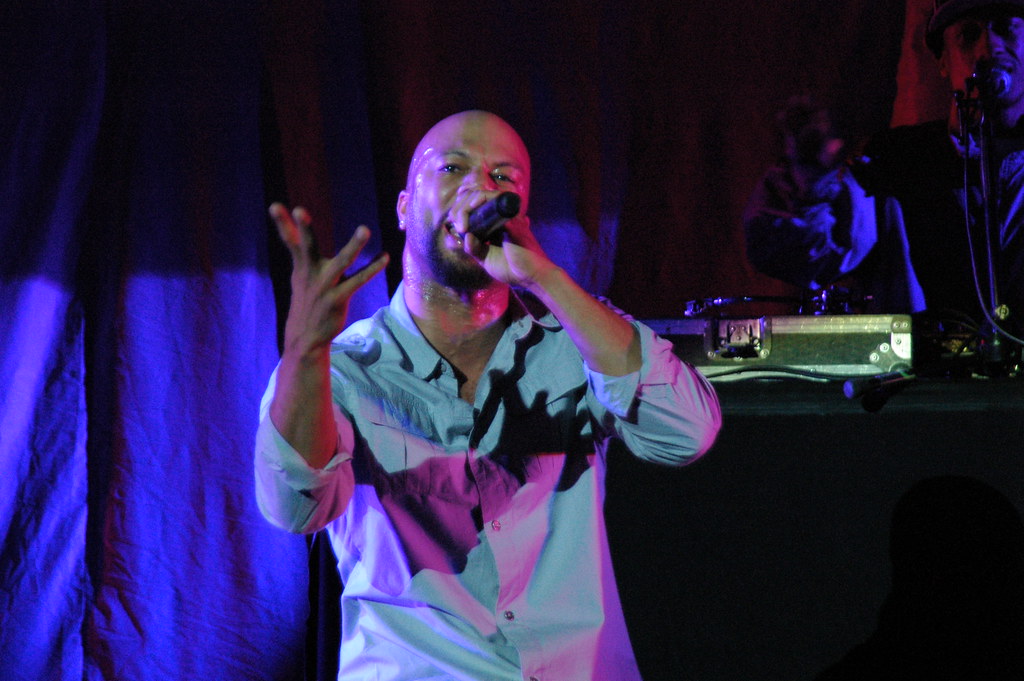
6. **The Soulquarians Era: Creative Evolution and “Like Water for Chocolate”**Following the success of *One Day It’ll All Make Sense*, Common signed a major label record deal with MCA Records and made a significant geographical shift, relocating from Chicago to New York City in 1999. This move placed him at the heart of a burgeoning creative movement, leading to his immersion in the “Soulquarians” collective.
Throughout 1999, Common began recording almost exclusively with this loose collective of musicians and artists, dubbed the “Soulquarians” by central figure Questlove. This period was marked by intense creative collaboration, and Common also made sporadic guest appearances on projects like The Roots’ *Things Fall Apart* and the Rawkus Records compilation *Soundbombing 2*, further solidifying his presence within this influential artistic circle.
In 2000, his fourth album, *Like Water for Chocolate*, was released to mass critical acclaim. Executive produced by Questlove and featuring significant contributions from J Dilla, who helmed almost every track, the album became a considerable commercial breakthrough for Common. It earned him his first gold record and greatly expanded his fanbase among critics and listeners alike, marking a true turning point in his career.
Common and J Dilla, both hailing from the Great Lakes region of the United States (Chicago and Detroit, respectively), quickly established a powerful creative chemistry. Their collaboration became a hallmark of the Soulquarians era, with one notable song, “Thelonius,” even appearing on both the Slum Village album *Fantastic, Vol. 2* and Common’s *Like Water for Chocolate*. This partnership deepened as Dilla’s health declined due to Lupus Nephritis, leading him to relocate to Los Angeles and asking Common to join him as a roommate, a testament to their close bond.
*Like Water for Chocolate* saw Common venturing into musical and lyrical themes that were unconventional for a hip-hop record at the time. A prime example is “Time Travelin’ (A Tribute To Fela),” a heartfelt homage to Nigerian music legend and political activist Fela Kuti, showcasing Common’s expansive influences. The album’s most popular single, “The Light,” was nominated for a Grammy Award, further underscoring its widespread impact and artistic achievement.
Read more about: Decoding Common’s Journey: Actionable Insights from a Hip-Hop Icon’s Multifaceted Career
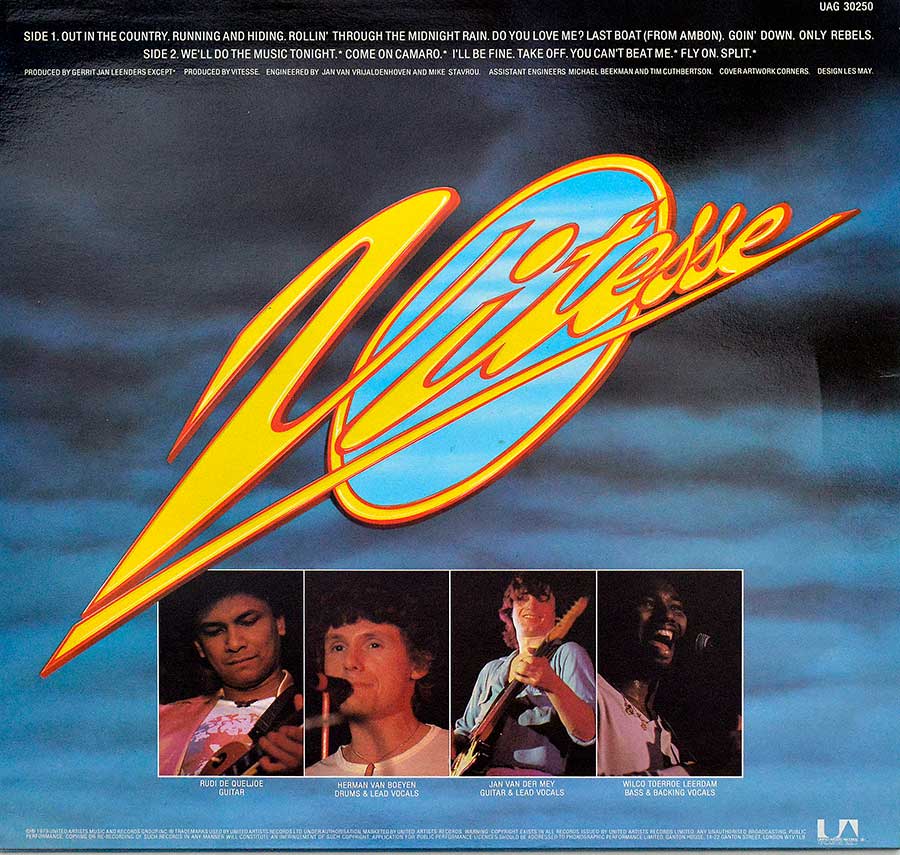
7. **The ‘Electric Circus’ and ‘GOOD Music’ Era: Navigating Experimentation and Mainstream Success**
Following his breakthrough with *Like Water for Chocolate*, Common continued his artistic evolution with the 2002 release of his fifth album, *Electric Circus*. This album was met with high anticipation and drew considerable praise from many critics for its ambitious vision, though it was not as commercially successful as its predecessor, selling under 300,000 copies. *Electric Circus* was an eclectic mix, boldly fusing genres such as hip-hop, pop, rock, electronic, and neo-soul, a stylistic choice that tended to divide critics, with some praising its experimental nature and others feeling he had strayed too far from his established sound. This marked Common’s final release under MCA Records before the label’s absorption into Geffen Records.
His career then took a significant turn in early 2004 when he made a notable appearance on fellow Chicagoan Kanye West’s multi-platinum debut album, *The College Dropout*, on the track “Get Em High.” This appearance coincided with the announcement of his signing to West’s then-newfound record label, GOOD Music. Kanye West, a long-time admirer of Common, even engaged in a friendly on-air MC battle with his lyrical idol, playfully jabbing at him for ‘going soft’ and for his fashion choices. This new partnership signaled a powerful creative alliance that would redefine Common’s sound and mainstream presence.
Under the GOOD Music imprint, Common released his sixth album, *Be*, in May 2005. This critically acclaimed project was almost entirely produced by Kanye West, with additional contributions from Common’s long-time collaborator James Yancey, known as J Dilla, who was also a favorite of West’s. *Be* performed exceptionally well, significantly boosted by Kanye’s involvement and the success of singles like “The Corner” and “Go.” The album earned Common his second gold record, selling approximately 800,000 copies, and received near-perfect ratings from prominent hip-hop publications like *The Source*, *XXL*, and *AllHipHop*. Its widespread acclaim also led to four Grammy Award nominations in 2006.
Common’s seventh LP, *Finding Forever*, arrived on July 31, 2007, continuing his productive collaboration with Kanye West, alongside other notable producers such as will.i.am, Devo Springsteen, Derrick Hodge, and Karriem Riggins. The album also featured the sole J Dilla-produced track, “So Far To Go,” alongside guest spots from Dwele, Bilal, D’Angelo, and UK pop starlet Lily Allen. Common explained to an audience at a free concert in Santa Monica that the title represented his quest to find an eternal place in hip-hop and his desire to remain an artist for life. The album debuted impressively at No. 1 on the national Billboard 200 charts and, though it lost the Best Rap Album Grammy to West’s *Graduation*, Common secured his second Grammy Award for “Southside,” winning Best Rap Performance by Duo or Group in 2008.
During this period, there was speculation about Common forming a group called ‘The Standard’ with Q-Tip, though this collaboration never materialized into an album. Common also played a crucial role in bridging the trans-Atlantic hip-hop scene by signing UK artists Mr. Wong and J2K to Kanye West’s Getting Out Our Dreams outfit. Beyond music, he secured a deal with Zune mp3 players and appeared in commercials for the Lincoln Navigator and Microsoft’s Zune, showcasing his growing influence in mainstream culture. His eighth album, *Universal Mind Control*, initially slated for a 2008 release, experienced multiple delays due to his filming commitments for *Wanted*, eventually launching with its eponymous lead single featuring Pharrell.
8. **Independent Ventures and Social Commentary: ‘Think Common Entertainment’ and Later Albums**Following his successful tenure with GOOD Music, Common embarked on a new chapter, establishing his own label imprint, Think Common Entertainment, in 2011. This venture signaled a renewed commitment to independent artistry and allowed him greater creative control. His ninth album, *The Dreamer/The Believer*, was released through a joint venture with Warner Bros. Records in December 2011. Notably, this project saw No I.D. take on the role of sole producer, a testament to their enduring creative partnership. The album was preceded by the singles “Ghetto Dreams” and “Blue Sky,” which showcased Common’s evolving lyrical depth and musical maturity.
*The Dreamer/The Believer* also generated significant buzz due to a lyrical exchange between Common and Canadian recording artist Drake. Common released a song titled “Sweet” that included lyrics critical of rappers who sing, which, although not specifically aimed at Drake, was interpreted as such. Drake responded forcefully with his track “Stay Schemin'” (featuring Rick Ross and French Montana), to which Common quickly retaliated with his own diss track. The feud eventually subsided, with Common stating, “It’s over. But it was all in the art of hip hop. He said some things to me so I had to say some things back…” acknowledging the competitive spirit inherent in the genre while affirming their ability to move past the conflict.
After a relatively quiet 2012, Common began to lay the groundwork for new projects, announcing plans for an extended play (EP) in January 2013 and his first mixtape in April of the same year. He subsequently revealed that his tenth solo studio album, initially slated for September 2013, would be released in early 2014, with production contributions from both Kanye West and No I.D. These announcements highlighted his continued dedication to his craft and his readiness to explore new formats for his music.
On January 6, 2014, Common officially announced his tenth studio album, *Nobody’s Smiling*, confirming that it would be entirely produced by his long-time collaborator No I.D. The album’s concept was deeply inspired by his troubled hometown of Chicago and the pervasive violence there. Common described it as “really a call to action,” reflecting on the conditions and circumstances that led to the album’s title. *Nobody’s Smiling* was set to feature artists like Vince Staples, James Fauntleroy, and other emerging talents from Chicago, reinforcing his connection to his roots and his commitment to addressing social issues through his art. It was also announced that Common had signed a recording contract with Def Jam Recordings and No I.D.’s Artium Records, with the album released on July 22, 2014.
Continuing his exploration of socio-political themes, Common released his eleventh studio album, *Black America Again*, in 2016 under Def Jam Recordings. This album garnered widespread critical acclaim for its poignant lyricism and powerful message. It featured a stellar lineup of guest appearances from legendary artists such as Stevie Wonder, Bilal, Marsha Ambrosius, BJ The Chicago Kid, John Legend, PJ, Syd, Elena, and Tasha Cobbs. The production was primarily handled by Karriem Riggins, with additional contributions from Robert Glasper, creating a rich and resonant musical landscape that further solidified Common’s position as a conscious and impactful artist.
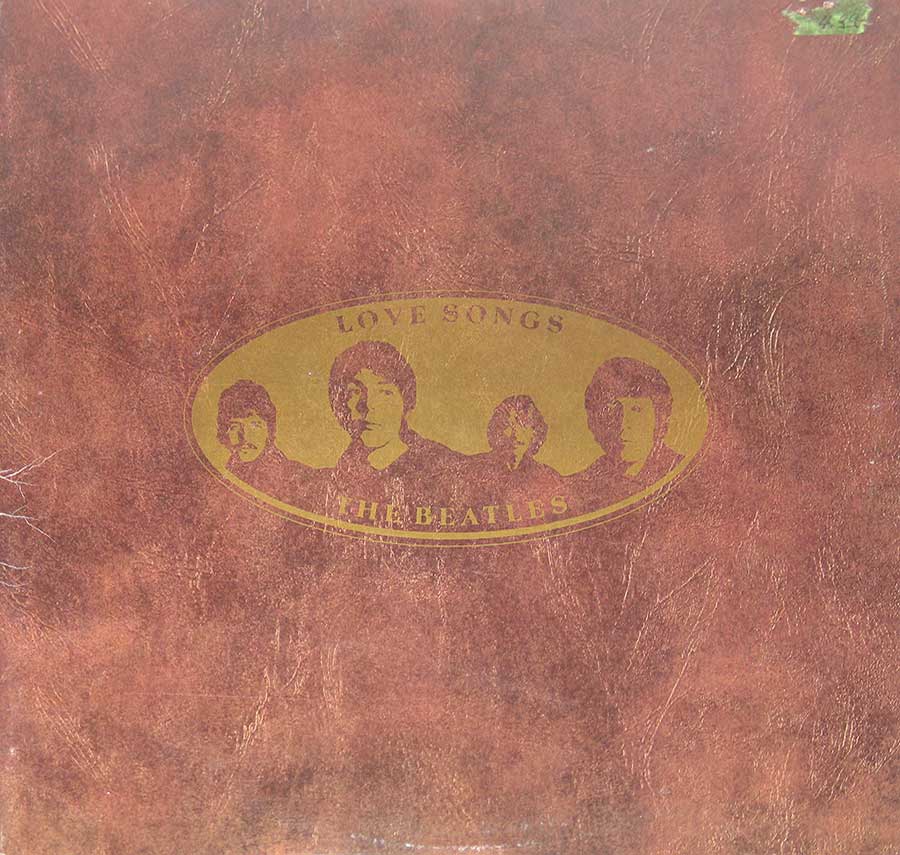
9. **Continued Musical Evolution: ‘Let Love’ and ‘A Beautiful Revolution’ Series**Common’s musical journey continued to diversify beyond his solo albums. In 2018, he announced the formation of a jazz group called August Greene, in collaboration with Karriem Riggins and Robert Glasper, both highly respected musicians. Shortly after this announcement, their self-titled album was released through a partnership with Amazon Music. The project featured guest vocals from Samora Pinderhughes and the award-winning Brandy Norwood on two tracks, “Optimistic” and “Time,” showcasing Common’s expansive musical taste and ability to blend genres seamlessly.
On August 30, 2019, Common released his twelfth solo studio album, *Let Love*, through Loma Vista Recordings and Concord Records. This album continued his tradition of thoughtful lyricism and rich musicality, featuring an impressive array of guest appearances. Collaborators included Samora Pinderhughes, Daniel Caesar, Swizz Beatz, Leikeli47, BJ the Chicago Kid, A-Trak, Jill Scott, Leon Bridges, and Jonathan McReynolds. The production was primarily helmed by Karriem Riggins, a frequent collaborator, with the poignant song “HER Love” (featuring Daniel Caesar) notably produced by the late J. Dilla, a testament to his enduring influence on Common’s work.
In 2020, Common delivered *A Beautiful Revolution Pt. 1*, a nine-track album that reflected his ongoing commitment to social commentary and uplifting messages. This project featured female singer PJ on seven tracks, alongside guest vocals from revered artists Black Thought and Lenny Kravitz. The following year, he released the sequel album, *A Beautiful Revolution Pt. 2*, which further expanded on these themes. This second installment featured a diverse cast of guest vocalists, including Jessica Care Moore, PJ, Black Thought, Seun Kuti, Marcus King, Isaiah Sharkey, Brittany Howard, and Morgan Parker. Both albums were primarily produced by his long-time creative partner Karriem Riggins, with various other producers credited as session musicians, highlighting a continued spirit of collaboration.
Common’s recent activities demonstrate his sustained relevance and creative drive in the hip-hop landscape. In August 2023, he was featured in *Men’s Health*’s Hip-Hop 50th Anniversary edition, appearing alongside other legendary figures like Method Man, Wiz Khalifa, Ludacris, Busta Rhymes, and 50 Cent, affirming his place among hip-hop’s elite. Looking ahead to 2024, it was announced that Common would be releasing a collaborative album with the iconic producer Pete Rock, titled *The Auditorium Vol. 1*. The album’s first single, “Wise Up,” has already been released, accumulating millions of streams on Spotify and earning a Grammy nomination for Rap Album of the Year, indicating that Common’s artistic fire burns as brightly as ever.
Read more about: The ’00s Enigma: 15 Defining Cultural Phenomena That Shaped (And Were Shaped By) The Decade
10. **Expansive Acting Career: From Screen to Stage**Beyond his illustrious music career, Common has carved out an impressive and extensive acting presence across film, television, and even Broadway. His early forays into television included appearances on American sitcoms such as UPN’s *Girlfriends* in 2003, where he played Omar, a slam poet, and a cameo on *One on One* as a drama class instructor. He also graced an episode of the ABC show *Scrubs*. His big-screen debut came in 2007 with the crime film *Smokin’ Aces*, where he portrayed the villainous Mob enforcer Sir Ivy, quickly followed by a role as Turner Lucas in Ridley Scott’s *American Gangster*, starring alongside Denzel Washington and Russell Crowe. In January 2007, he made a memorable appearance in a *Saturday Night Live* sketch as himself, just one week before *Smokin’ Aces* opened.
The late 2000s and early 2010s saw Common taking on more prominent film roles, solidifying his reputation as a versatile actor. In 2008, he had a supporting role as ‘The Gunsmith’ in the film adaptation of the comic book *Wanted*, sharing the screen with Morgan Freeman and Angelina Jolie. That same year, he appeared in *Street Kings* alongside Keanu Reeves and Forest Whitaker. His filmography expanded to include *Terminator Salvation* (2009) as Barnes, *Just Wright* (2010) where he starred as a basketball player opposite Queen Latifah, and the comedy *Date Night* (2010) as Detective Collins. He was also cast as John Stewart/Green Lantern in the unproduced film *Justice League: Mortal*, indicating his rising profile in Hollywood.
A significant and sustained television role came with AMC’s western series *Hell on Wheels*, where Common starred as Elam Ferguson, a recently freed slave navigating his place in the world, from 2011 to 2014. This role allowed him to showcase dramatic depth over multiple seasons. On the big screen, he continued to take on diverse parts, including Agent Evans in *Now You See Me* (2013). A pivotal film role was his portrayal of civil rights leader James Bevel in the 2014 film *Selma*, for which he not only co-starred but also co-wrote the Oscar-winning song “Glory,” merging his musical and acting talents for profound impact. In 2015, he played a hitman in *Run All Night*.
Common’s acting career continued to flourish in the mid-2010s and beyond, with a range of roles in high-profile projects. In 2016, he appeared as a gangster named ‘Monster T’ in David Ayer’s *Suicide Squad*, part of the DC Extended Universe, and co-starred with former rival Ice Cube in *Barbershop: The Next Cut*. A standout role came in February 2017 when he reunited with Keanu Reeves in *John Wick: Chapter 2*, playing the formidable professional hitman/bodyguard Cassian. He also ventured into voice acting, lending his voice to Kiburi the crocodile in Disney Junior’s *The Lion Guard* starting in August 2017.
More recently, Common has garnered critical acclaim for several performances. In Eva Vives’s debut feature *All About Nina* (2018), he played Rafe Hines, a role that *Variety*’s Peter Debruge lauded as “easily the strongest of the half-dozen supporting roles he’s had this year.” That same year, he appeared as Rear Admiral John Fisk in the action thriller *Hunter Killer* and gave a nuanced performance as Uncle Carlos, a black police officer, in the film adaptation of *The Hate U Give*. His impressive acting journey culminated in his Broadway debut in September 2022, starring in Second Stage Theater’s Pulitzer Prize-winning play *Between Riverside and Crazy*, further demonstrating his exceptional range and commitment to storytelling across all mediums.
Read more about: 11 Former Movie Stars Who Mastered Simple Career Moves to Achieve Billionaire Status

11. **Behind the Scenes: Film Production, Writing, and Social Activism**Common’s influence extends far beyond performing, as he has actively engaged in film production, authorship, and impactful social activism. In October 2015, he signed a two-year deal with HBO, a significant step that enabled him to launch his own film production company, Freedom Road Productions. This achievement realized a long-held career goal he had articulated in a 2012 interview. Furthermore, in 2016, he collaborated with Amazon Studios and American Girl, serving as an executive producer for the direct-to-video feature *An American Girl Story – Melody 1963: Love Has to Win*, showcasing his commitment to crafting meaningful narratives from behind the camera.
His talents also shine in the literary world. Common was invited by then-First Lady Michelle Obama to participate in a poetry reading at the White House on May 11, 2011, recognizing his deep lyrical prowess and the influence of literary giants like Maya Angelou on his work. However, this invitation sparked controversy with the New Jersey State Police and their union, who cited some of Common’s past lyrical content, notably the song “A Song For Assata” about Assata Shakur, and references to Mumia Abu-Jamal. While White House Press Secretary Jay Carney stated President Obama opposed these particular lyrics, he supported Common’s broader stance. Common himself responded by saying, “I guess Sarah Palin and Fox News doesn’t like me,” and asserted his unwavering support for police officers and troops.
Common has shared his life’s journey and insights through two impactful memoirs. In September 2011, he published *One Day It’ll All Make Sense* through Atria Books, a poignant account detailing the profound influence of his close relationship with his mother on his life, with sections even narrated by her. His second memoir, *Let Love Have The Last Word*, released in May 2019, delved deeper into his personal relationships, exploring his bond with his daughter Omoye, his romantic experiences, his parents, and his ongoing quest to define and embody the concept of love.
His commitment to social causes is equally profound. Common is a dedicated vegan and an outspoken supporter of animal rights, actively partnering with PETA, appearing in their “Think Before You Eat” print advertisement, and promoting vegetarianism in the documentary *Holistic Wellness for the Hip-Hop Generation*. He is also a prominent figure in the “Knowing Is Beautiful” movement, advocating for HIV/AIDS awareness. His activism extended into politics through his involvement in the “Yes We Can” video, a song supporting Barack Obama’s presidential candidacy in 2008, and he has publicly pledged to eliminate anti-gay lyrics from his music, reflecting his evolving social consciousness.
Common is the proud founder of the Common Ground Foundation, a non-profit organization dedicated to empowering underprivileged youth to become contributing citizens and strong leaders. The foundation offers diverse programs focusing on leadership development, educational growth, creative expression, and even a book club. In 2014, Common Ground inaugurated the AAHH! Fest music festival in Chicago’s Union Park, which returned in 2016 before a brief hiatus. In 2017, inspired by performing concerts in California prisons and at the State Capitol, he founded Imagine Justice, another non-profit focused on criminal justice reform. During the COVID-19 pandemic in May 2020, through Imagine Justice, he launched the #WeMatterToo social media campaign to highlight the plight of incarcerated individuals, featuring short films with inmates’ testimonies. He has also participated in the award-winning documentary short film *#Bars4Justice* in Ferguson, Missouri, performed at the March for Our Lives anti-gun violence rally, and supported the Kamala Harris 2024 presidential campaign.
Read more about: From Underground Rapper to Oscar Winner: 12 Mind-Blowing Facts You Didn’t Know About Common’s Incredible Journey!

12. **Enduring Values and Legacy: Personal Life and Philanthropy**Behind the public persona of the award-winning artist and activist is a man deeply rooted in personal values and family connections. Common is a devoted father to his daughter, Omoye Assata Lynn, whom he shares with his ex-fiancée Kim Jones. Omoye’s own academic achievements, including graduating from Howard Law School in 2022, are a source of immense pride for him. His personal life, including his relationships with comedian and actress Tiffany Haddish and later singer and actress Jennifer Hudson, has occasionally garnered media attention, but his core values remain consistent.
His lifestyle reflects his deeply held ethical convictions, notably his commitment to veganism, which aligns with his support for animal rights. Beyond his public activism, Common is a lifelong and passionate fan of the Chicago Bulls and Chicago Bears, proudly representing his hometown. He is also a devout Christian, attending Trinity United Church of Christ in Chicago, demonstrating the spiritual foundation that underpins much of his work and public persona.
Common’s remarkable journey has not only yielded a wealth of artistic achievements but has also earned him significant recognition. In May 2019, he served as the spring commencement speaker at Florida Agricultural and Mechanical University (FAMU), where he was subsequently awarded an honorary Doctor of Fine Arts (DFA) degree. This honor celebrated his profound contributions to the arts and his role as an inspiring figure to younger generations.
Read more about: The Silent Saviors: 9 Unforgettable Stories of Medical Debt Forgiveness by Kind Strangers and Inspiring Campaigns
Common’s entire career stands as a powerful testament to artistic versatility and an unwavering commitment to authentic expression and social consciousness. From his early days in Chicago’s hip-hop scene to his status as a multi-hyphenate artist with accolades across music, film, and advocacy, he has consistently leveraged his platforms to tell stories, provoke thought, and advocate for change. His enduring impact across music, film, writing, and activism solidifies his position as a truly unique and respected voice, demonstrating that his quest to find an eternal place in hip-hop and be an artist for life has been resoundingly successful, leaving an indelible mark on contemporary culture and inspiring countless others along the way.





